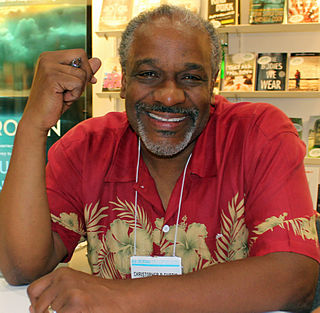A Quote by Norman Finkelstein
I'm not a good writer, and I don't care. Unfortunately, after I left college, I didn't have time much for literature. I wish I did. Most of the time I read documents, and that's not going to help your writing. But I'm a very logical writer, and you can't get out of me. Once I've nailed you, you're finished.
Related Quotes
I got so discouraged, I almost stopped writing. It was my 12-year-old son who changed my mind when he said to me, "Mother, you've been very cross and edgy with us and we notice you haven't been writing. We wish you'd go back to the typewriter. That did a lot of good for my false guilts about spending so much time writing. At that point, I acknowledged that I am a writer and even if I were never published again, that's what I am."
The first is that good writing consists of mastering the fundamentals (vocabulary, grammar, the elements of style) and then filling the third level of your toolbox with the right instruments. The second is that while it is impossible to make a competent writer out of a bad writer, and while is equally impossible to make a great writer out of a good one, it is possible, with lots of hard work, dedication, and timely help, to make a good writer out of a merely competent one
Ever since 'Strange Heaven,' I haven't really reread my old work. Not so much because I don't like the writer I was, or because I find flaws in the writing, but more because I get so burnt out on a novel once I've finished writing, revising, editing and copy editing it that I genuinely never want to look at it again after it's gone to press.
I try to make the writing as regular and regimented as possible. I usually get up at around 5 a.m. and read what I wrote the day before. Some of the time, after I read, I think the writing's very good and some of the time I feel embarrassed by what I've written. You have to learn not to pay too much attention to these feelings.
It's not possible to advise a young writer because every young writer is so different. You might say, "Read," but a writer can read too much and be paralyzed. Or, "Don't read, don't think, just write," and the result could be a mountain of drivel. If you're going to be a writer you'll probably take a lot of wrong turns and then one day just end up writing something you have to write, then getting it better and better just because you want it to be better, and even when you get old and think, "There must be something else people do," you won't be able to quit.
I was writing at a really young age, but it took me a long time to be brave enough to become a published writer, or to try to become a published writer. It's a very public way to fail. And I was kind of scared, so I started out as a ghost writer, and I wrote for other series, like Disney 'Aladdin' and 'Sweet Valley' and books like that.
One of the most useful parts of my education as a writer was the practice of reading a writer straight through - every book the writer published, in chronological order, to see how the writer changed over time, and to see how the writer's idea of his or her project changed over time, and to see all the writer tried and accomplished or failed to accomplish.




































